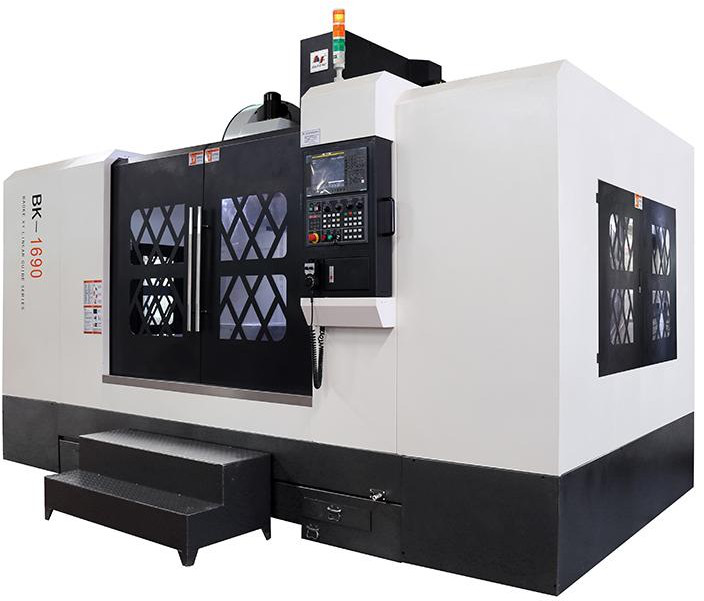ईमेल फॉर्मेट में त्रुटि भइल बा
ईमेल खाली ना हो सके
ईमेल पहिलहीं से मौजूद बा
6-20 अक्षर(केवल अक्षर प्लस नंबर)
पासवर्ड असंगत बा
ईमेल फॉर्मेट में त्रुटि भइल बा
ईमेल खाली ना हो सके
ईमेल के कवनो अस्तित्व नइखे
6-20 अक्षर(केवल अक्षर प्लस नंबर)
पासवर्ड असंगत बा

खबर
CNC Lathe Processing Skills(1)
A numerical control lathe is a kind of high-precision and high-efficiency automatic machine tool. Using a numerical control lathe can improve processing efficiency and create more value. The emergence of numerical control lathe has enabled enterprises to get rid of the backward processing technology. The processing technology of the numerical control lathes is similar to that of the ordinary lathe. However, as the numerical control lathe is a one-time clamping, continuous automatic processing completes all turning processes, the following aspects should be paid attention to.

Reasonable selection of cutting parameters
For high-efficiency metal cutting, the material to be machined, cutting tools, and cutting conditions are the three major elements. These determine the processing time, tool life, and processing quality. An economical and effective machining method must be a reasonable choice of cutting conditions.
The three elements of cutting conditions: cutting speed, feed rate, and cutting depth directly cause tool damage. With the increase of cutting speed, the tool tip temperature will rise, resulting in mechanical, chemical, and thermal wear. The cutting speed is increased by 20% and the tool life is reduced by 1/2.
The relationship between the feed condition and the wear behind the tool occurs in a very small range. However, when the feed rate is large, the cutting temperature rises and the rear wear is large. It has less influence on the tool than the cutting speed. Although the influence of cutting depth on the tool is not as great as that of cutting speed and feed rate, the hardened layer of the material to be cut will also affect the service life of the tool in a micro-deep cutting.
The user shall select the cutting speed to be used according to the processed material, hardness, cutting state, material type, feed rate, cutting depth, etc.
The most suitable processing conditions are selected based on these factors. Regular and stable wear is the ideal condition for reaching the service life.
However, in practical operation, the selection of tool life is related to tool wear, machining dimension change, surface quality, cutting noise, machining heat, etc. When determining the processing conditions, it is necessary to study according to the actual situation. For difficult-to-machine materials such as stainless steel and heat-resistant alloy, coolant or rigid blade can be used.
How do determine the three elements of machining?
How to correctly select these three elements is one of the main contents of the metal cutting principle course. Some key points are excerpted from the WeChat of metal processing. The basic principles for selecting these three elements are as follows:
- Cutting speed (linear speed, peripheral speed) V (M / min)
To select the revolutions per minute of the spindle, you must first know how much the cutting linear speed V should be taken. Selection of V: depends on tool material, workpiece material, processing conditions, etc.
Tool material:
Cemented carbide, V can be higher, generally more than 100 m / min. generally, technical parameters are provided when purchasing blades:
How much linear speed can be selected when processing what material. High-speed steel: V can only be low, generally not more than 70 m / min, and in most cases less than 20~30 M / min.
Workpiece material:
High hardness, lower V; Cast iron, V is taken as low, and when the tool material is cemented carbide, 70~80 M / min can be taken; For low carbon steel, V can be more than 100 m / min, and for non-ferrous metal, V can be higher (100~200 M / min). For quenched steel and stainless steel, V should be lower.
Processing conditions:
Rough machining, lower V; Finish machining, V is higher. The rigidity system of the machine tool, workpiece, and the tool is poor, and V is taken as low. If s used by the NC program is the spindle revolution per minute, s:s (spindle revolution per minute) =v (cutting linear speed) *1000/ (3.1416* workpiece diameter) shall be calculated according to the workpiece diameter, and cutting linear speed v. if the NC program uses constant linear speed, s can directly use the cutting linear speed v (M / min)
Searching for a best small cnc lathe, horizontal cnc lathe, new cnc lathe from China, you can get high-quality products at a nice price.

